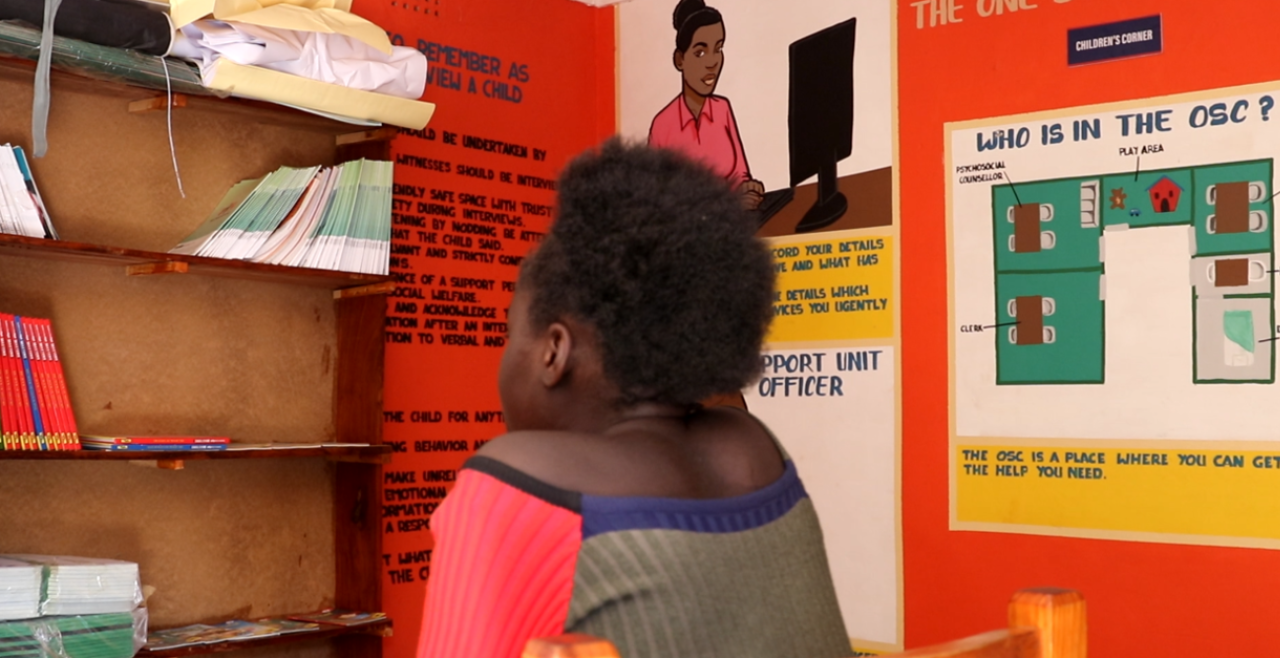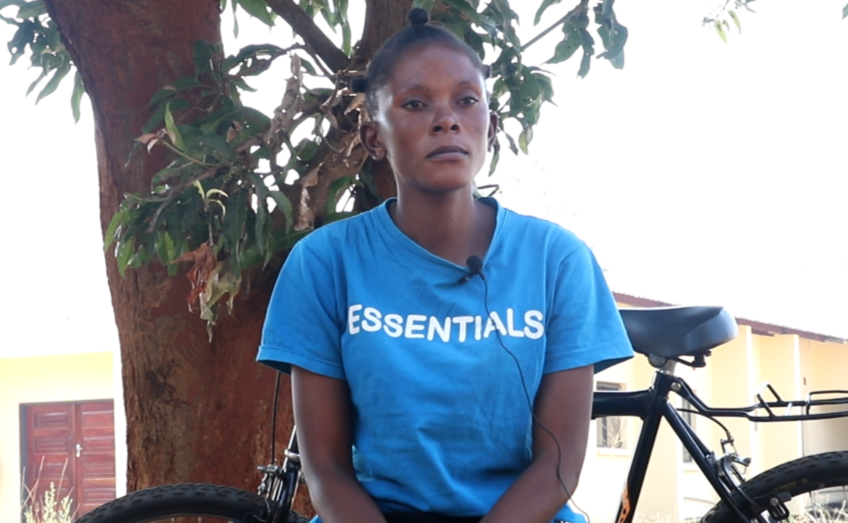How one-stop centres are supporting gender-based violence survivors to reclaim their futures in Zambia

MUCHINGA PROVINCE, Zambia - Under the shade of a mango tree at the Isoka One-stop Centre, Jane Nakamba, 27, sat quietly with her child and reflected on her journey.
A mother of two, Ms. Nakemba’s life took a difficult turn when her husband, a bricklayer, left to work in another town while she was pregnant.
“At first, he would promise to send money,” she recalled. “But then he stopped. Sometimes when I called, he would blacklist my number.”
By the time she was seven months pregnant, Ms. Nakemba had been turned away by her in-laws and was left to seek refuge with her parents. It was at her lowest point that she found the one-stop centre at Isoka General Hospital.
One-stop centres are places where survivors of violence can access coordinated services such as medical, legal, psychological and social support at a central location. Survivors not only receive immediate care, but are able to rebuild their lives through long-term recovery strategies such as counselling, education and economic opportunities.
“I was helped at the one-stop centre,” said Ms. Nakemba. “They enrolled me at Isoka Trades, where I studied fashion and design. Now I can provide for my children and I have a skill I can depend on.”
Financial independence is critical to ending violence against women and girls, as economic insecurity can make women and girls reliant upon their abusers and increase their vulnerability to violence in the future.
"Now I can provide for my children and I have a skill I can depend on."
- Jane Nakema, 27
Less than three hours away, in Chinsali, 17-year-old Blessing Bwalya also found her way to a one-stop centre. Pregnant and fearful about her future, she had lost hope.
“They brought us to the counselling room and gave us consent and medical examination papers to sign,” she recalled. “But what mattered most was that they helped me go back to school.”
The centre connected Blessing with a government programme that supports girls returning to school after pregnancy. Blessing was re-admitted by a local school with the help of social workers, while paralegals helped her navigate the re-enrollment process.
She returned to her studies while her mother took care of her baby.
“I continued in grade 10,” she says with a proud smile. “At the one-stop centre, they teach that children should not marry early or drop out of school. I would tell anyone in my situation to come here. They will help you.”
“At the one-stop centre, they teach that children should not marry early or drop out of school. I would tell anyone in my situation to come here. They will help you.”
- Blessing, 17
Other survivors share similar stories of transformation.
Deophister Ng’oma, also from Chinsali, sought help after her husband abandoned the family.
“When I came here, I received assistance which has brought me this far,” she said. “The Ministry of Health trained us to budget and manage finances. We wrote down what we needed for businesses, and they provided equipment and merchandise. Now I can run my own business. Before, I just waited for a husband to give me something. Today, I can decide for myself. That is freedom.”
Strengthening one-stop centres
Behind these stories are counsellors and staff who dedicate themselves to supporting survivors.
“At the Village-Led One Stop Centre, we counsel families, address cases of abuse, and encourage parents not to marry off young children,” explained Jonn Mulenga, a counsellor.
Spotlight Initiative is helping to revitalize one-stop centres in Zambia, particularly in the districts of Katete, Chipangali, Chinsali and Isoka. This includes updating standard operating procedures to ensure consistent, quality care for survivors; training health workers, police Victim Support Units, paralegals, counsellors and social workers in how to deliver survivor-centred support; and improving case management and referral systems. Centres will be updated with essential items such as privacy screens, medical kits, furniture, and ICT tools, and the Initiative is supporting additional paralegals and counsellors through civil society partners.
In response to the suspension of the USAID STOP GBV Project following funding cuts, Spotlight Initiative is stepping in to bridge service gaps in Chinsali and Isoka through partnerships between the UN, government and civil society. Access to survivor services had significantly declined after the suspension of the Project, with no Victim Support Unit personnel, paralegal or data clerk available, and only a nurse to provide limited medical assistance. By 2027, Spotlight Initiative aims to offer one-stop centres in all four target districts.
“Spotlight Initiative is an important project, and we welcome it because it will give hope to our community,” says Mr. Mulenga.
Traditional leaders are also supportive of the programme.
“I pledge to work hand in hand with you to eradicate early marriages and gender-based violence,” says Senior Chief Kafwimbi of Isoka District.
A Future Reimagined
Today, Jane Nakemba is more than a survivor, she is a mother shaping her own destiny. Blessing is back in school, determined to finish her education. Ms. Ng’oma is running a business and encouraging other women to do the same.
Stories like theirs are proof that with the right support, women and girls cannot only survive, but flourish.
By Jabbes Banda

